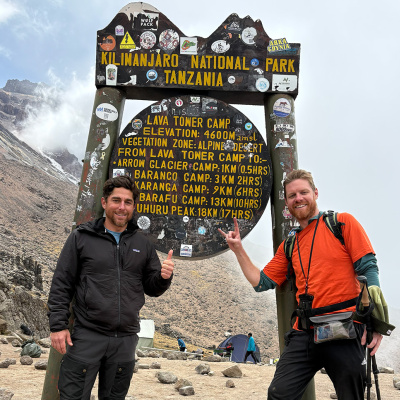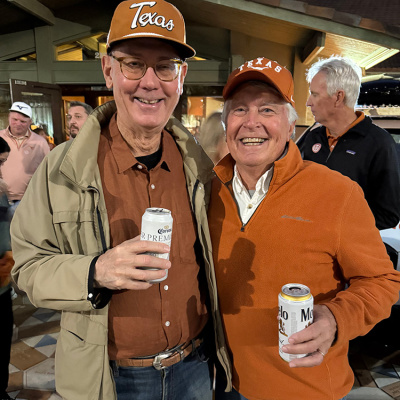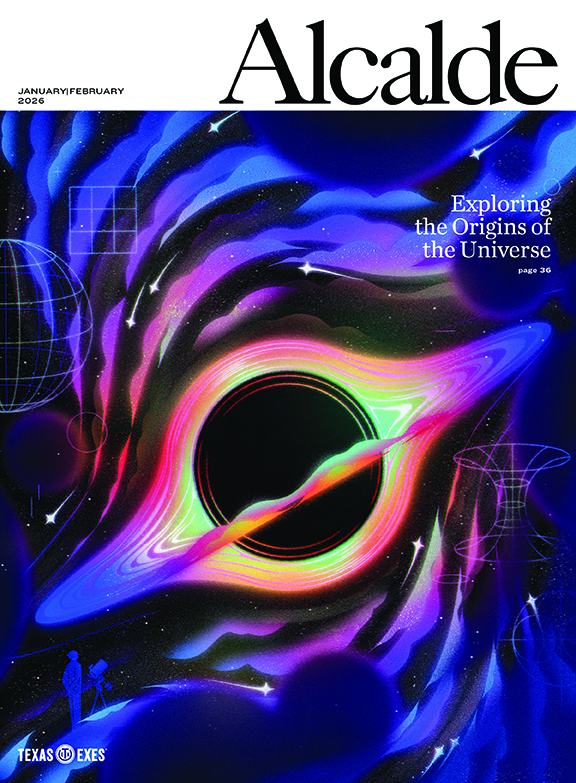All Hail the Humanities

In these tough economic times, there’s been a lot of hard talk about spending cuts and doing more with less. Few, if any, fields are more vulnerable to budget crunches than the group of disciplines known collectively as the humanities.
The humanities generally include ancient and modern languages; literature; rhetoric; American studies (and other interdisciplinary area studies); history; philosophy; religion; the visual arts; and the performing arts. Together, they are dedicated to the exploration of the human experience—in all of its complexity, messiness, and richness.
As a teacher and scholar of the humanities, I am compelled to add my voice to the mix. I have taught at UT for 13 years now. When I am outside of the classroom, I am advising students, writing letters of recommendation, researching and writing books about American cultural and social history, working as a museum consultant, advising filmmakers, and giving public lectures in myriad places. All of these facets of my work complement each other.
Fundamentally, the humanities transport us into different places and different times, beckoning us to step outside of ourselves and into the experiences of distant people and cultures. In other words, the humanities enable us see the world with fresh eyes—outside of, but never apart from, our own experiences.
To help my students think creatively about the past, I use popular culture and the social history of everyday life to make human experience accessible across the centuries. Ballads, broadsides, sermons, posters, paintings, photographs, letters, spirituals, toys, film, radio, memoirs, fiction, magazines, television, and costumes represent a smattering of the artifacts that I use to pull my students into the past.
Today, advanced technologies make historical explorations in the humanities even more exciting. Geographic Information Systems software, for example, can instantly reproduce a specific historical landscape using aggregate data from old maps, drawings, paintings, and local descriptions of a particular place, such as Gettysburg, Pennsylvania, in the bloody Civil War summer of 1863, or Salem, Massachusetts, during the witch trials of 1692.
On many occasions, I use pieces of my own family history to illuminate my teaching. My beloved late mother, for instance was a founder of La Leche League in Hawaii (prompted by my birth!). Her trove of letters, diaries, and organizational materials comprise a vivid personal window into American parenting ideologies during the Cold War. My great-grandfather was a handwriting specialist who provided expert opinion during several high-profile murder trials, including the Leopold and Loeb case and the Lindbergh Baby trial.
My students have responded with generational stories of their own. Over the years, they have brought me stories and artifacts from their parents, grandparents, and ancestors—including a remarkable diary of a gentleman from the American Revolution, a firsthand account of life as a farm worker, and harrowing stories of being held captive during World War II. I am heartened as I watch my students talk to each other and to their families, making salient connections between their own experiences and the broader synthesis of American culture and society that I present in the classroom.
I have witnessed these kinds of inter-generational conversations in my capacity as a researcher in the humanities. My first two books explore the cultural and social meanings of the American circus, an entertainment form that literally runs in families. I have met generations of circus people, all of whom have been exceptionally generous with their time and insights, including an aerialist who showed me how she performed while seven months pregnant, or a member of the wire-walking Wallenda family, who invited me to share a delicious dinner.
In addition to museum consulting and film work, I have had the privilege of lecturing about the circus in remarkable places, such as Zagreb, Croatia, where an annual circus festival joyfully brings performers, show owners, and scholars together from around the world, most notably from other formerly war-torn regions of the Balkans.
As a scholar and teacher of the humanities, I am dedicated to sharing my passion for intellectual exploration and critical thinking with my students and the wider public. Ultimately, I believe that the humanities illuminate our common humanity, thereby helping us on a fundamental level to understand what it means to be human.






